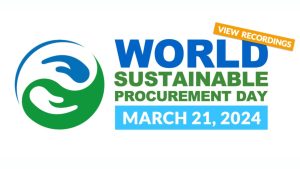If a municipality intends to explore the possibilities around effective and efficient procurement by adopting a more strategic approach, then it must place emphasis on taking proactive measures to improve the purchasing function.
“It is not sufficient to rely on only those measures that would prevent things from going wrong; it would be time well spent to concentrate, initially, on conceptualising an overall proactive approach to the procurement function”, says Stephen Bauld, a government procurement expert.
Very often when procurement programmes perform poorly, the problems with said programmes can be traced back to an early failure to concentrate the efforts of procurement staff on clearly-identified goals.
Declarations by newly-created government entities and by newly-elected governments that they are committed “to effective management that ensures fairness, transparency and fiscal prudence” in the conduct of procurement are almost universal. Sadly, after a few years of actual performance, one can rarely identify any actual comparative improvement in performance relative to other public authorities.
Purchasing management is systematic, whether it pursues one goal or a coherent, integrated package of consistent goals. It follows that one of the most effective tools that a purchasing professional brings to the table when assisting in a purchasing project is the ability to clearly identify project goals.
At least in the case of major procurement efforts, each procurement project should focus on a stated goal, which should exactly describe what the project is set to accomplish.
The project description should employ action words such as ‘design’, ‘build’, ‘implement’ and the like. The goal should be limited to the essential elements of the project that communicate the purpose and expected outcome.
It is obvious that the overall project and interim goals must be attainable. On the other hand, ‘attainable’ is not a synonym for taking the easy, time-worn path.
In a review of large private-sector companies, studies have found that improved performance in the purchasing area (e.g. through working more effectively with suppliers) has led to improvements in the time and cost associated with project design, development, manufacture and distribution. Development times have been slashed by as much as 40%, inventory turns have increased from 6 to over 50 a year, and the cost of purchased materials has been reduced by between 15% and 35%.
Many of the recent initiatives in the international public procurement area have had the objective of trying to spend money more efficiently as their principal goal − but the better ones have also taken into account the further goal of facilitating programme and service delivery to the public.
For example, when discussing Canadian federal government initiatives to secure “Better Value for Canadians”, former Minister of Public Works and Government Services, Scott Brison, stated:
“My department provides services that are common to all federal government departments and agencies − services that include real estate management, goods and services purchasing, information technology as well as translation, consulting and audit functions. We are essentially the ‘back office’ of government and it’s critical we do our job effectively so other departments can focus on their roles of serving Canadians. Our strategy involves improving the way we purchase goods and services on behalf of the government, better managing our property and taking fuller advantage of information technology.
First, smarter buying can make a huge contribution to better efficiency. We will save $2.5-billion over five years by maximising our purchasing power and consolidating what we buy for government departments.”
Some procurement projects are far more ambitious than others and involve criteria for success far beyond the simple matter of trying to spend money more wisely.
A realistic project may push the skills and knowledge of the people working on it, but it should not break them.
Stephen Bauld is a government procurement expert and can be reached at swbauld@purchasingci.com or contact us.
Some of Stephen’s columns may contain excerpts from The Municipal Procurement Handbook published by Butterworths.



























